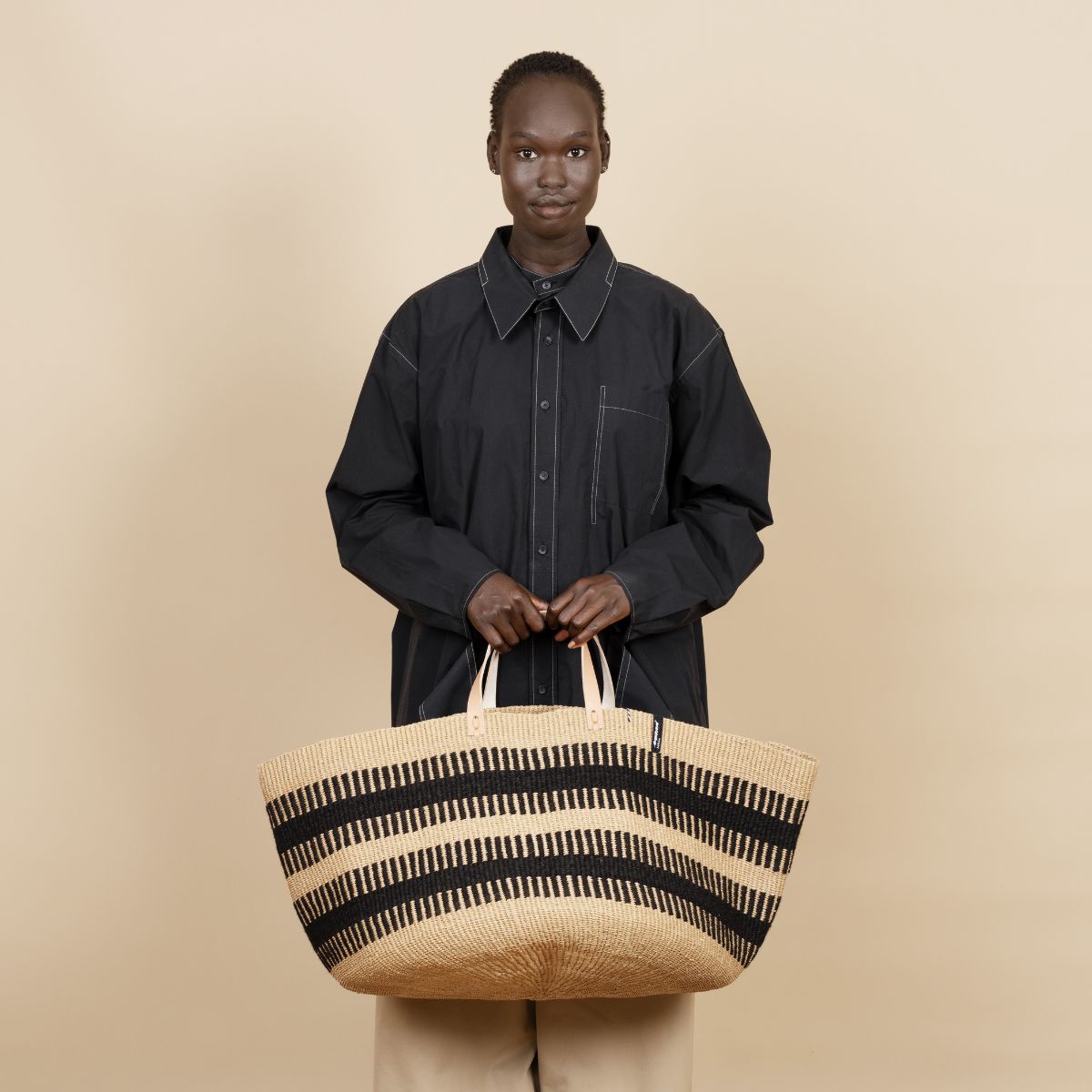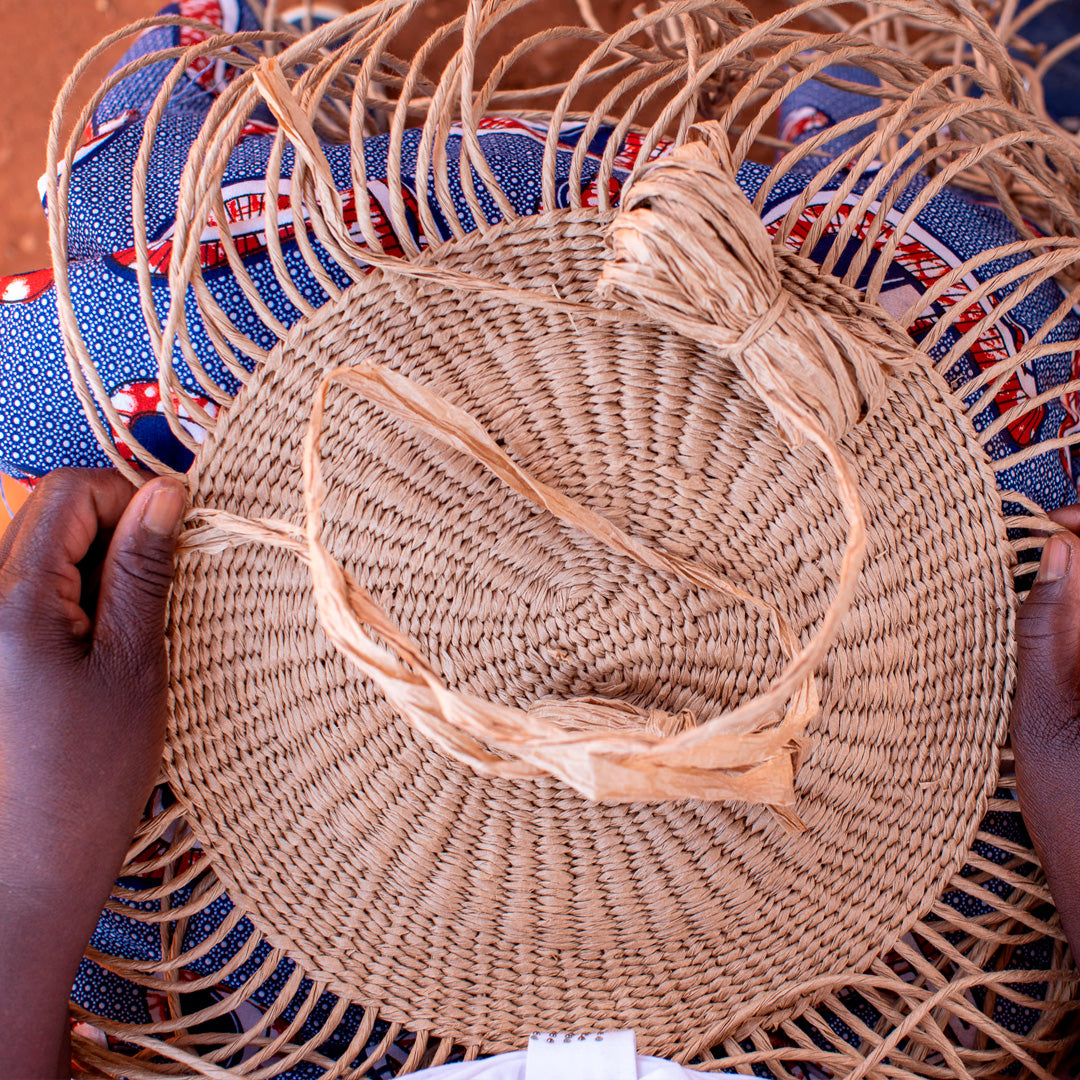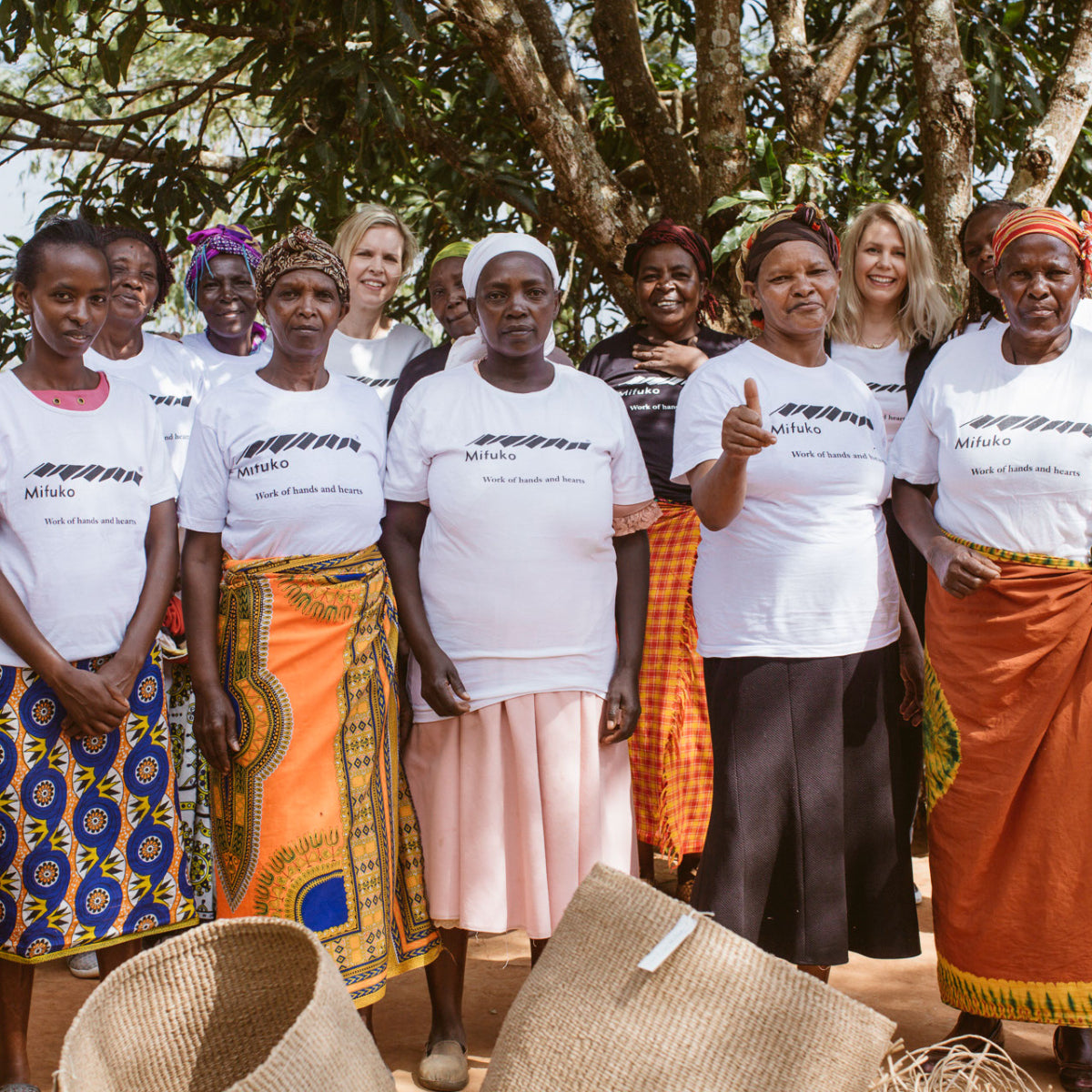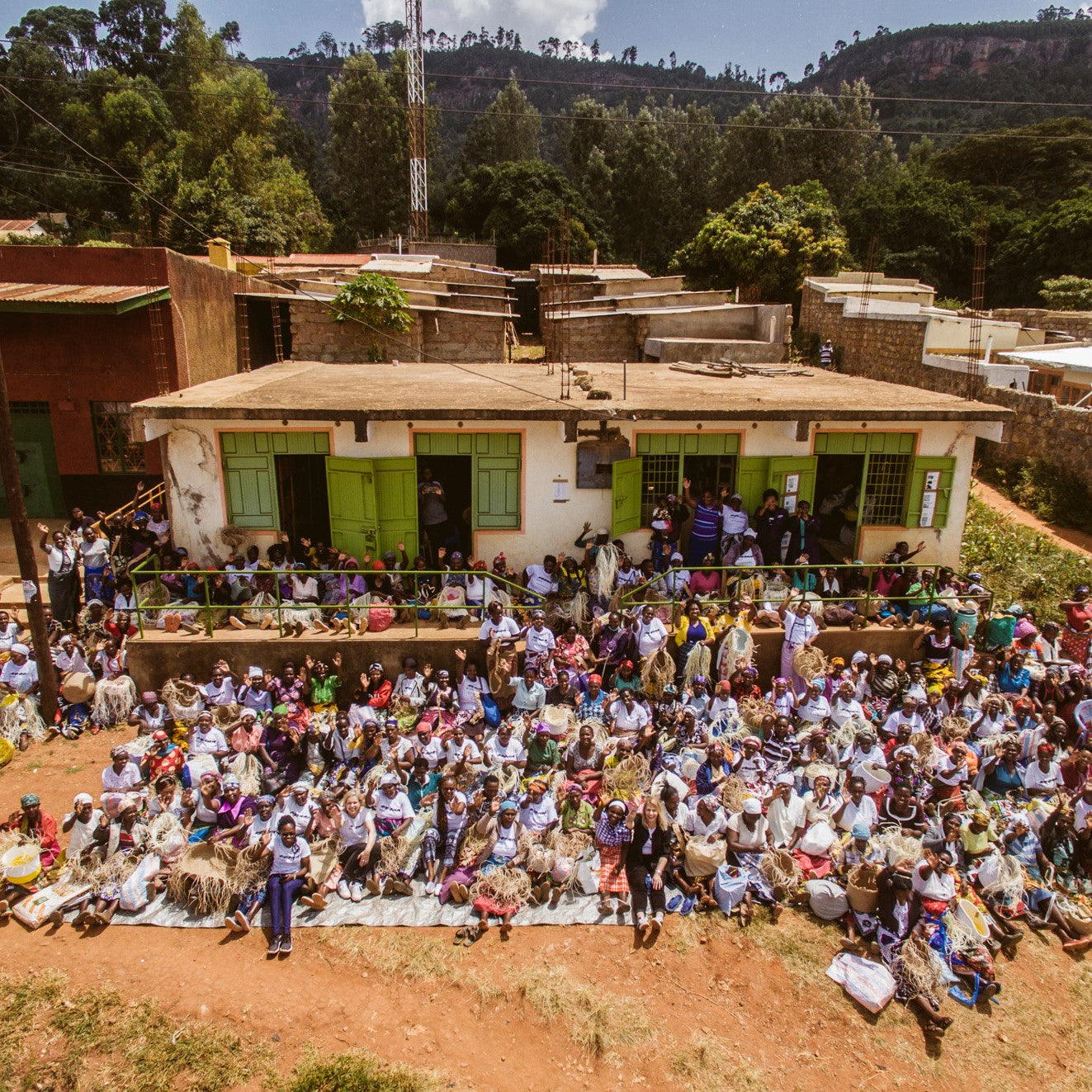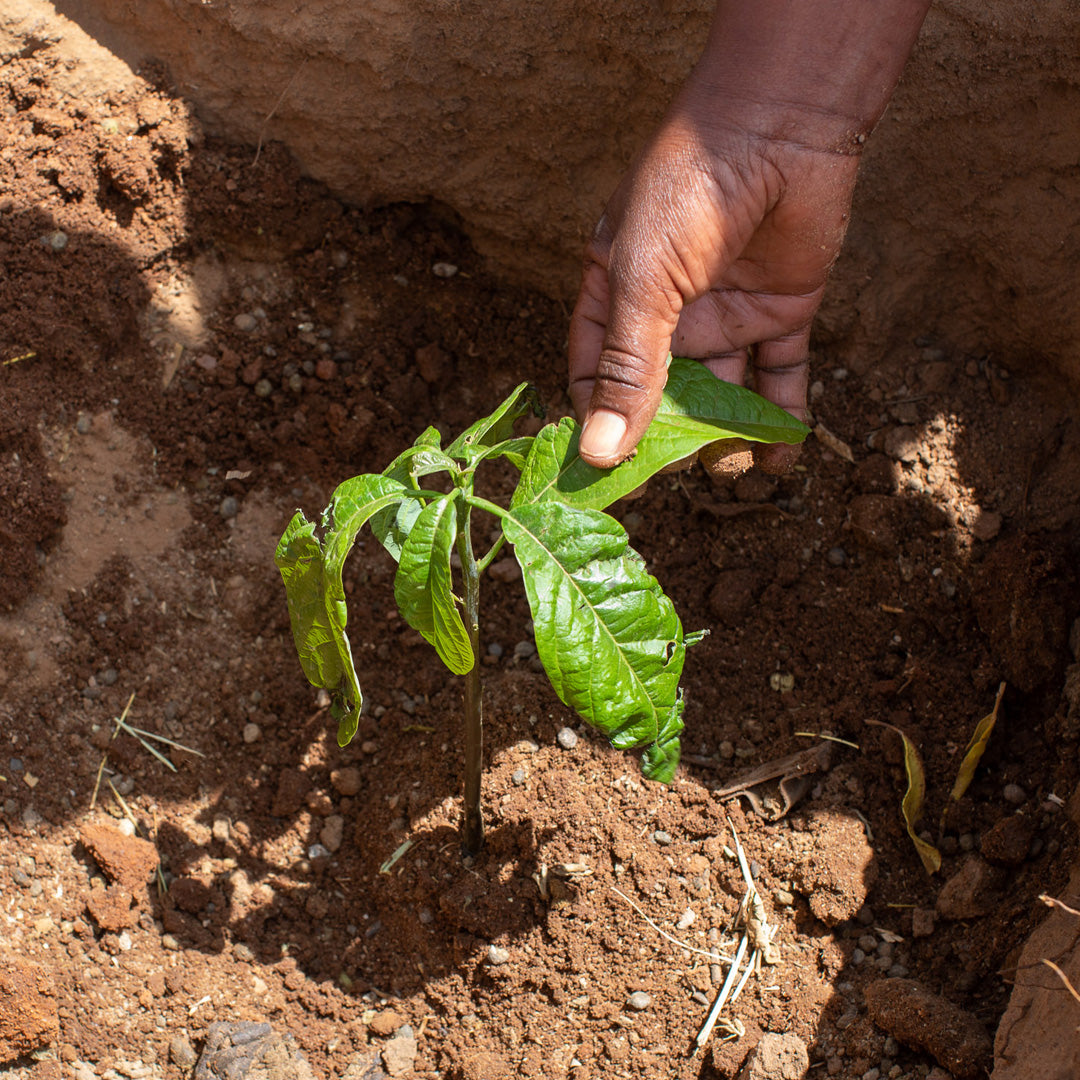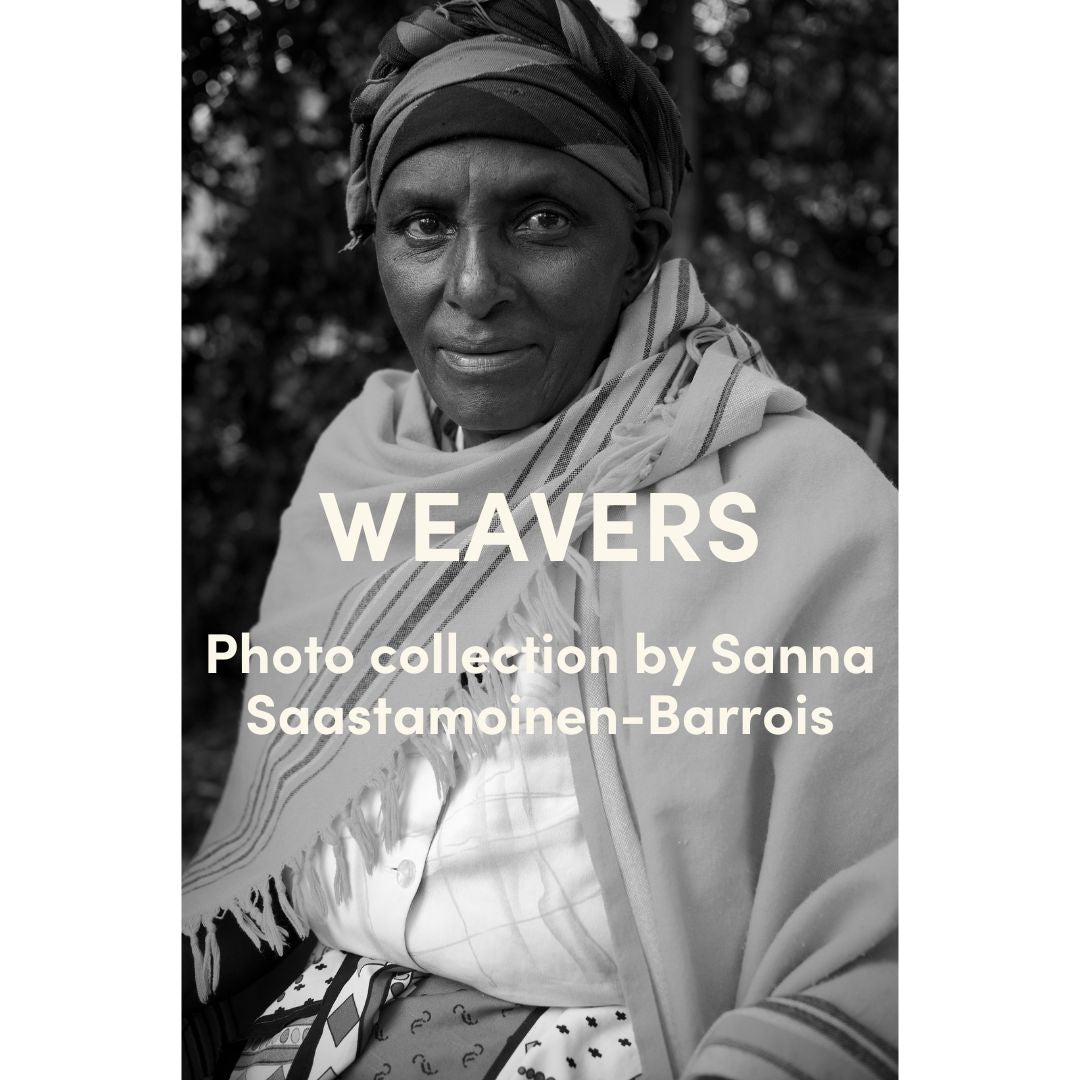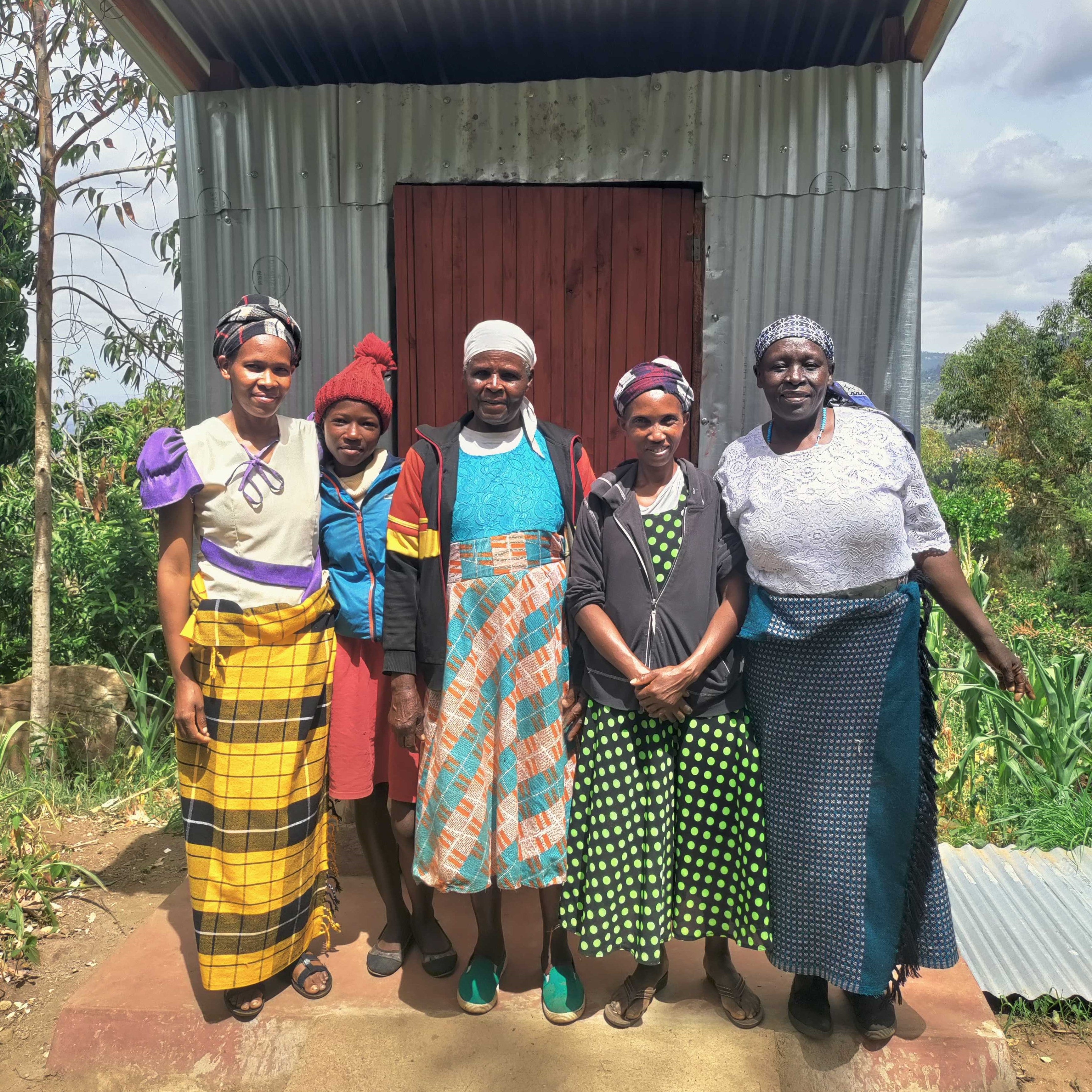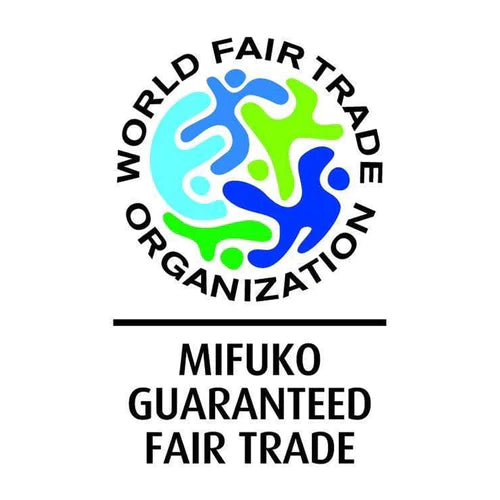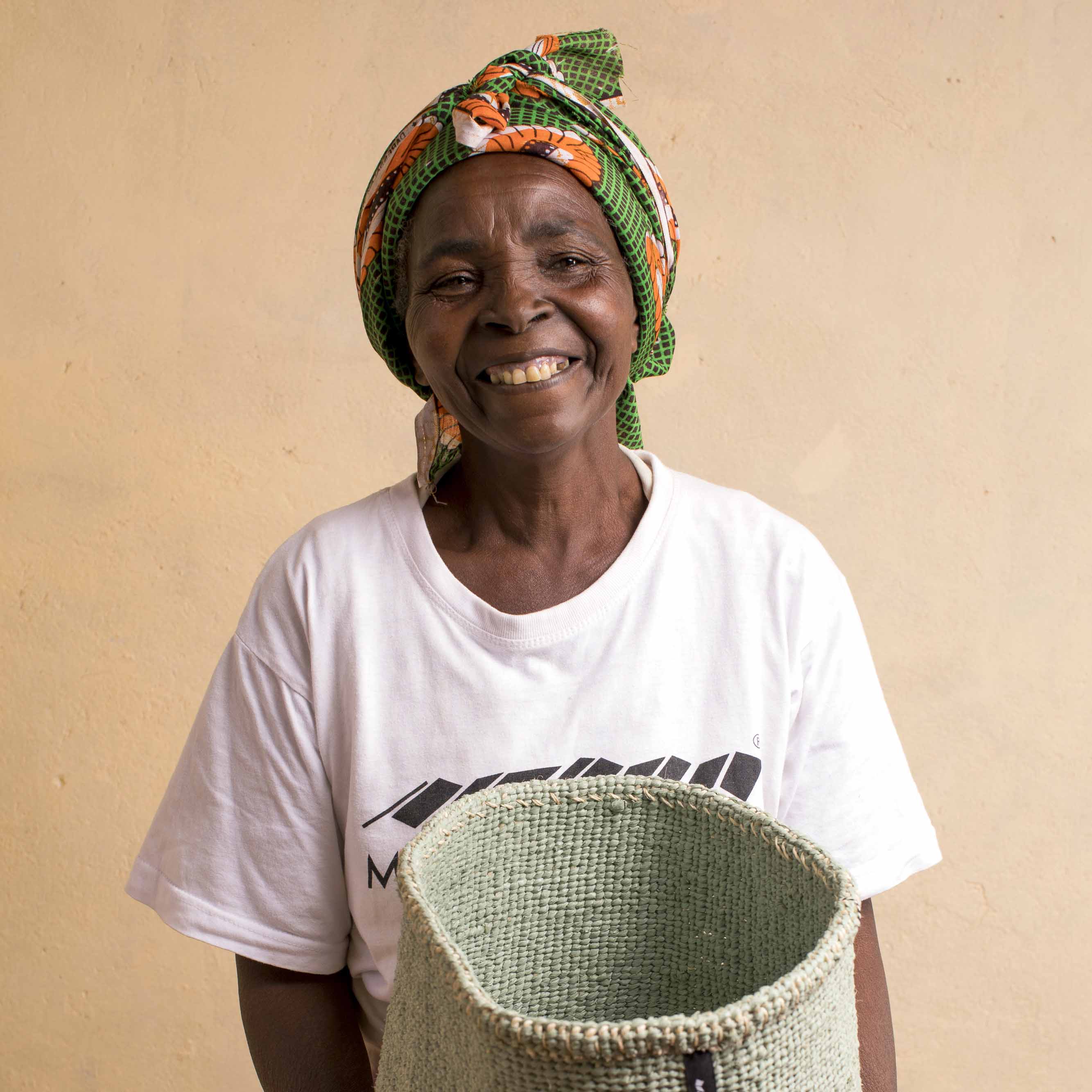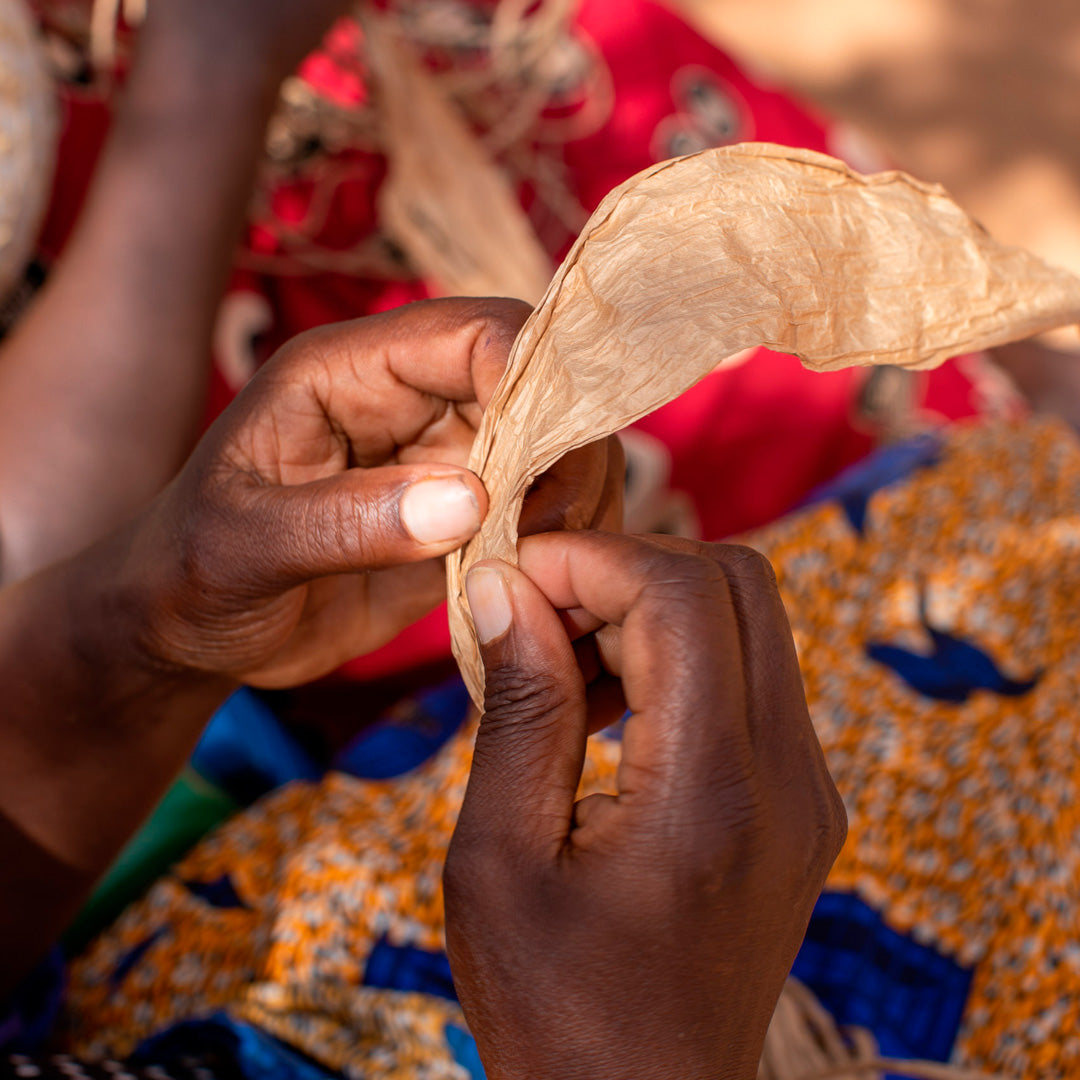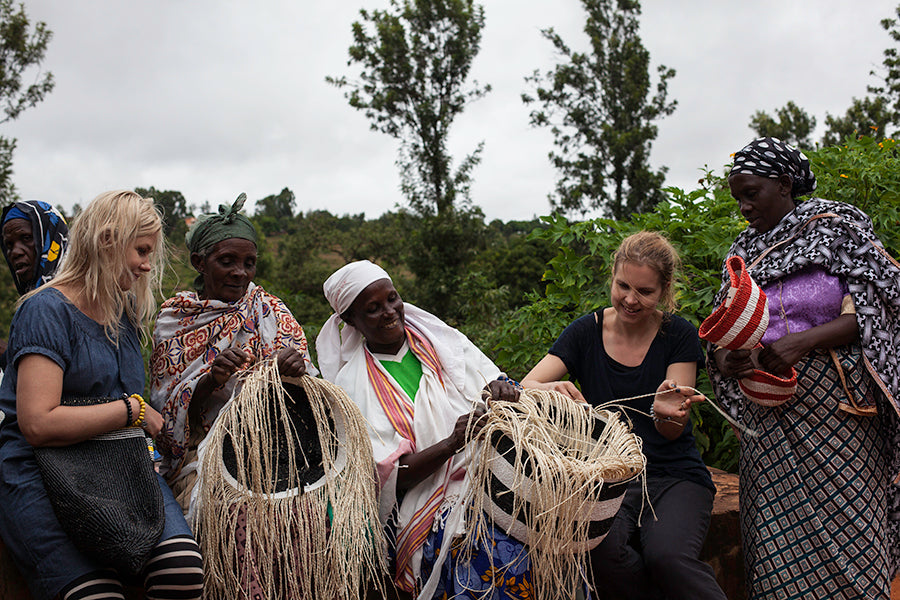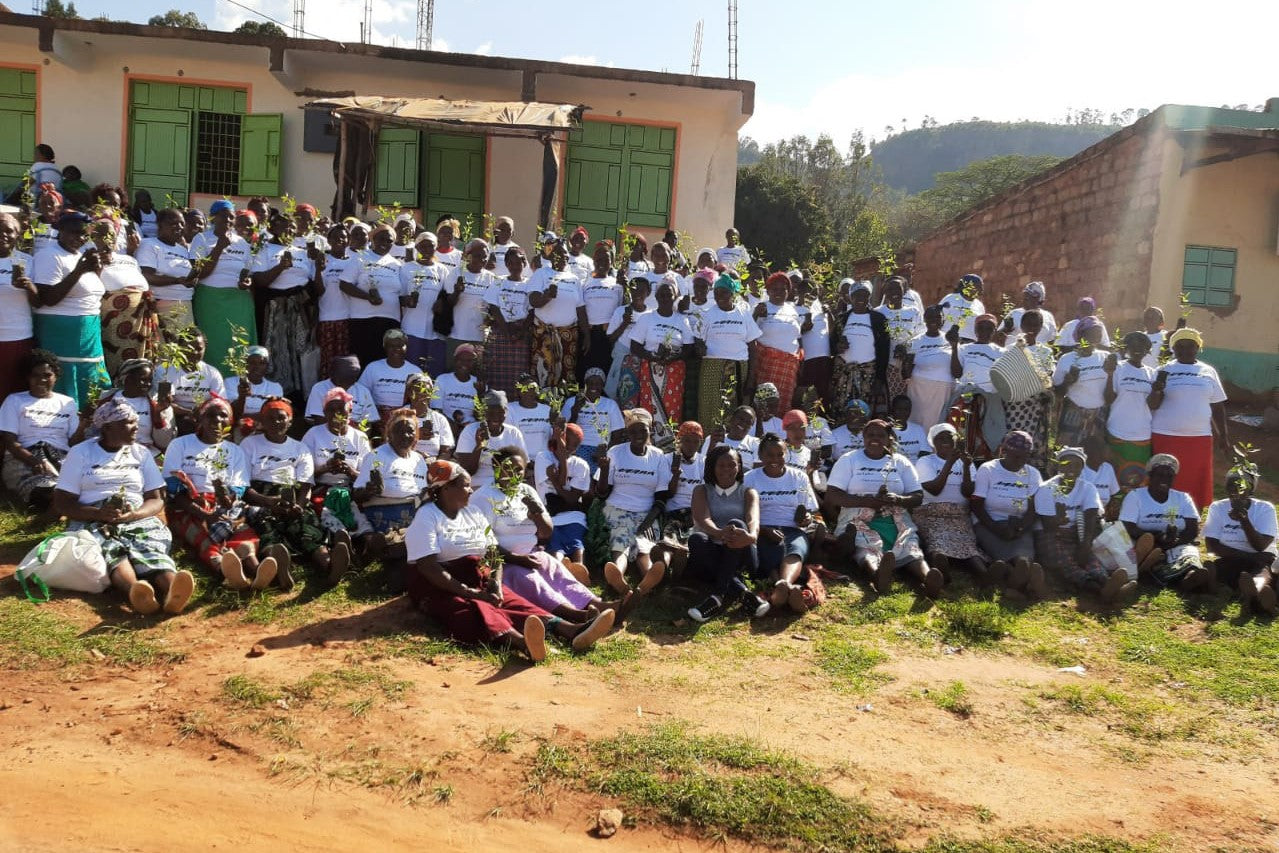Mifuko's commitment to training our artisans
'At the heart of Mifuko and Mifuko Trust are 40 self-help groups in Makueni, Kenya'.
At the heart of Mifuko and Mifuko Trust are 40 self-help groups in Makueni, Kenya. These groups make baskets for Mifuko to sell in Finland and internationally. The number of women's groups has almost doubled since 2021. To ensure the production chain functions smoothly, Ruth Kalondu, Production Manager at Mifuko's subsidiary Punonta Oy, continuously trains the women's groups.
To strengthen this work, Mifuko's Sustainability and Production Manager Minna Impiö designed a three-step training programme for the groups, comprised of around 1300 women, with support from Finnpartnership. The training is continuous and adaptable to the level of each group, some of which are new and some of which have been operating for a long time.
Guest post by Anita Lintula, Project Manager at Mifuko Trust.
Ruth Kalondu and Peter Manyolo, Project Manager at Mifuko Trust, are the trainers for the training conducted from July-September. Soon all the women's groups will have completed the first training in the new programme. The training focused on good group practices, the importance of group rules, the roles of officers and members, record keeping, savings and loan fund management, and quality assurance. We asked Peter and two artisans who attended the trainings for their thoughts and experiences of the training.
Why does Mifuko train women's groups?
"Our aim is to strengthen the groups so that their governance is transparent, and their activities are socially and economically sustainable." - Peter
How were the training topics selected?
"We first talked to each group about their activities and compared their practices with pre-defined good group practices. Based on this discussion, we identified areas where the group needed more know-how. Issues such as record keeping, savings and quality assurance came up. Record keeping includes meeting notes, attendance lists and a 'work register' to record orders, baskets delivered and payments. It is also important to keep careful records of savings made by groups." - Peter
Ruth's training experiences and aspirations

Ruth Mbile is a member of the Utanu Wa Kavilani self-help group. Ruth is 32 years old and joined the group in 2019. Before joining, Ruth said she admired the women who were busy weaving baskets. She didn't know how to weave so asked a friend to teach her. Ruth is grateful that she is now a skilled weaver.
As a member of the group, Ruth feels it is her responsibility to make good quality baskets according to the provided instructions. She also feels it is important to follow the group's rules such as delivering the baskets on time and attending group meetings.
Ruth expected to learn more about quality issues during the training, but also learned about the importance of group's rules and the roles and responsibilities of those in charge (chairperson, secretary, treasurer). She now hopes to learn more about record keeping, saving and running a loan fund as part of the group's activities.
As a member of the group, Ruth feels it is her responsibility to make good quality baskets according to the provided instructions. She also feels it is important to follow the group's rules such as delivering the baskets on time and attending group meetings.
Ruth expected to learn more about quality issues during the training, but also learned about the importance of group's rules and the roles and responsibilities of those in charge (chairperson, secretary, treasurer). She now hopes to learn more about record keeping, saving and running a loan fund as part of the group's activities.
Lucia's training experiences and aspirations
Lucia Peter is 64 years old and the chairperson of the Ng'unduni self-help group. She joined the group in 2014 when her friend taught her to weave. Lucia wants to be a good leader for the group, which includes making sure that orders are delivered on time as agreed and the quality of the baskets is good.
As a member of the group, it is important for Lucia to listen to and respect other group members and to follow the rules of the group. She expected to learn more about quality assurance during the training, but she also learnt the importance of record keeping, saving money and setting personal goals. Lucia would like more training on record keeping and income generation.

Groups interested in joint income generation
Peter Manyolo says that the idea is to continue to provide training on record-keeping to the group's officers, especially the secretary, but also the chairman and treasurer. Quality assurance is also an important part of the training. The groups were enthusiastic about saving and setting up their own loan fund. Already, one group has bought a tent to rent for events to build up a common fund. This inspired other groups as an example of how saving together can build up the group's common fund.

